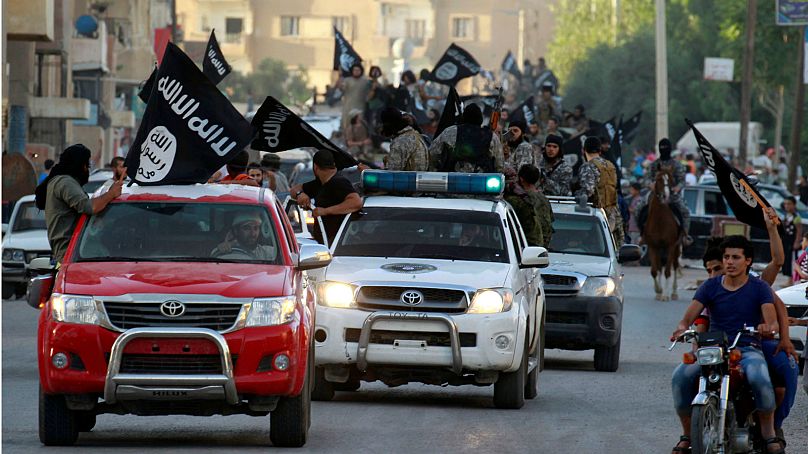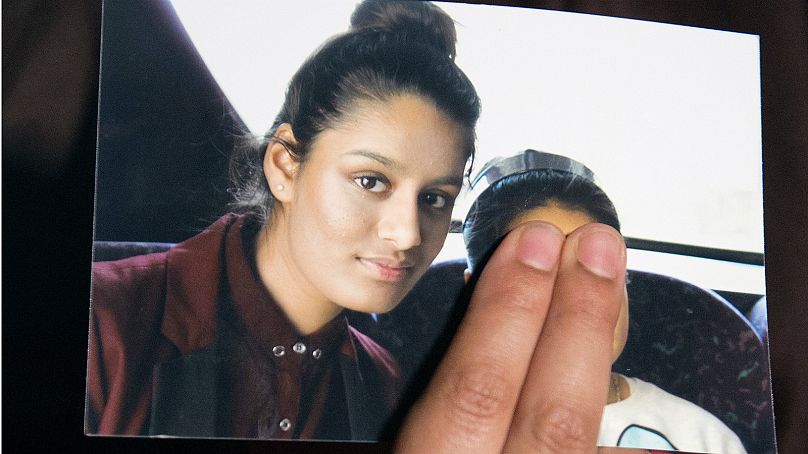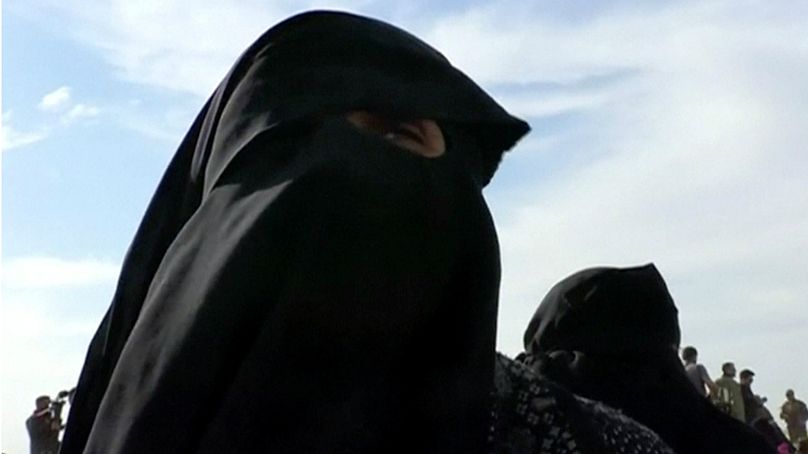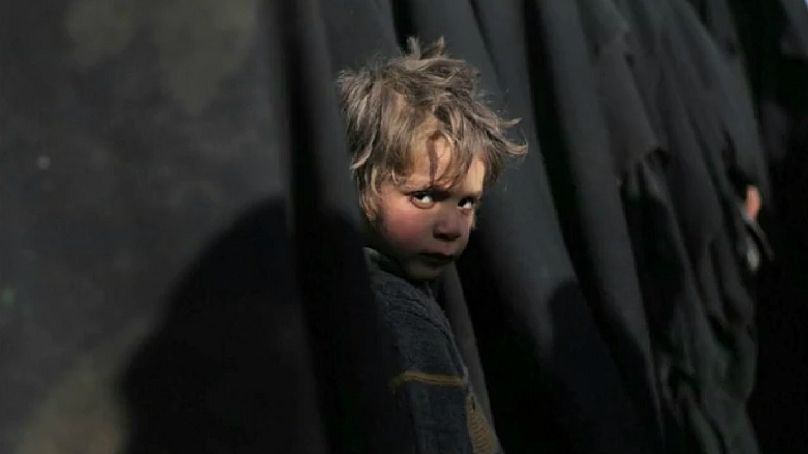We take a look at the different policies across countries in Europe for repatriating and rehabilitating recruits of the so-called Islamic State.
With the US-backed Syrian Democratic Forces (SDF) closing in on the final area controlled by the so-called Islamic State (IS), an area of one-square-kilometre in Syria's Deir Az Zour Governorate, talk has now turned to what happens next.
 ADVERTISEMENT
ADVERTISEMENT
 ADVERTISEMENT
ADVERTISEMENT
Many of IS' fighters from Syria have fled into hiding or have been captured and detained by the SDF, but questions still remain over the future of the group's foreign fighters.
According to the European Commission, more than 42,000 foreign fighters joined terrorist organisations between 2011 and 2016, around 5,000 of whom are believed to be from Europe.
Around 850 have been detained by the SDF in the last few years, according to the US, prompting calls from Washington for countries to repatriate and prosecute their citizens.
But how has Europe responded so far to the prospect of its citizens returning from the IS battlefield?
Are European countries repatriating their citizens?
Initially, European governments turned their backs on repatriating their citizens, but some have since started to reconsider their stance after some US encouragement.
The Republic of North Macedonia became the first European country to conduct a significant repatriation, taking back and prosecuting seven fighters in August 2018.
In January, France said it was considering the repatriation of 130 men and women to be tried, but a month later no progress appeared to have been made.
Germany, which has a lot of foreign fighters, is said to be watching the French case closely.
“The federal government is examining all options for a possible return of German nationals,” the German Foreign Ministry said in a statement in November.
The reluctance felt in Europe may stem from the worry that much of the evidence against any returning fighters may not stand up in court, a number of experts have suggested.
Speaking specifically of cases in the UK, Shiraz Maher, the director of the International Centre for the Study of Radicalisation, wrote: "For all kinds of legal reasons, much of what is called 'battlefield evidence' in this case would not be admissible in court, either falling short on evidential grounds or because of the manner in which it was obtained. We do not, for example, use intercept evidence in UK courts."
"The result is that some repatriated British fighters could simply walk free once they return. Clearly, that is a situation no one wants. Another option is that they could be convicted of lesser crimes – but this poses problems of its own."
This sentiment from Maher can be extended across much of Europe.
"It's difficult to prove in trial that they committed any crimes," Maarten van de Donk, from the European Commission's Radicalisation Awareness Network (RAN), told Euronews.
"Of course, there are people in the news who say they only went for "good" reasons and were never involved in conflict."
"There is a black box there — even the people who claim they didn’t do anything."
Despite these noted difficulties, Sweden suggested on Thursday an exploration of the legal approach.
Home Affairs Minister Mikael Damberg and Justice Minister Morgan Johansson met with the EU council to broach the subject of an EU-wide tribunal for IS fighters.
The Swedish ministers believe an international effort in the dealings of returning EU-native IS members would contribute to more extensive investigations, and, later trials.
What happens to those who return home on their own accord?
While Europe may appear somewhat uninterested in actively seeking out its citizens, there is one thing that is clear — if an IS member returns to their home border on their own accord, they can probably expect to be prosecuted.
The German Interior Ministry was reported last month as saying a third of its estimated 1,000 nationals who are believed to have joined IS in Iraq and Syria since 2013 have returned.
Many of those have since been prosecuted or placed into rehabilitation programmes.
UK Security Minister Ben Wallace told British media recently that "anyone who goes out to fight or support organisations such as [IS]... should expect to be interviewed, and should at the very least expect to be prosecuted."
The UK has also gone so far as to strip citizenship from some British IS members who expressed a desire to return home, which has sparked huge human rights and legal debate.
What about the non-combatants? Are they being treated differently?
There have been several media interviews with Europeans, many of whom are women, who claim they haven't taken part in the fighting in the hope they would be allowed to return home.
The most recent interview by The Times newspaper saw a heavily pregnant British woman, Shamima Begum, say that while she didn't regret leaving the UK, she wanted to return home over concerns of the well-being for her unborn child.
READ MORE: 'I don't regret coming here,' says British schoolgirl who ran away to join ISIS
Both France and Belgium also interviewed their own homesick nationals, while AFP interviewed a male German shoemaker, who insisted he wasn't involved in combat.
Van de Donk, from the RAN, said such claims weren't uncommon.
"Painting the picture that women are innocent and men are perpetrators is very black and white," he told Euronews.
"Not all women are innocent — some worked for the Sharia police, and we also know that a lot of them worked in recruitment."
But, "it's very difficult to prove," he said. So "it's a case of whether we want to give them a second chance."
On Twitter, Maher pointed out that even those who were non-combatant, foreign IS members essentially fed the group's propaganda machine.
"These are highly radicalised individuals who lent intangible support to IS through simply being there; their presence in IS territory alone represented a type of moral and propaganda victory for the group," he wrote.
"In many senses, the presence of non-combatant migrants represents a distinct form of propaganda of the deed."
"These migrants played a role in normalising the abnormal (joining IS)."
In the case of British woman Shamima Begum, the UK government did not show any sympathy.
Her British citizenship was ordered by Home Secretary Sajid Javid to be revoked shortly after she gave the public interview with The Times.
But what about the children?
For Europe, the repatriation of children appears to be the priority and the first step.
Back in October, before it had relaxed its stance on repatriation, France said it was working on plans to return children born to foreign fighters.
In Belgium, the policies for repatriating children were broken down into age brackets.
According to a number of reports, children under the age of 10 are considered to have the right to immediately return to Belgium, while those between the ages of 10 and 18 would be reviewed on a case-by-case basis.
However, the Belgian government vowed to appeal a court ruling in December that ordered the repatriation of 6 children and their mothers.
A report from El Pais said Spain had worked to help return the families of IS fighters, going as far to foot the bill for guides to drive them from conflict zones to Turkey.
Russia also reports to have brought home children born to Russian IS members.
While this might appear to be a sign of progression for Europe, there is still much-noted hesitation.
Maher says this may be due to the pressure applied to also repatriate the rest of the family.
"Suddenly, if we could repatriate children, then pressure would follow to repatriate non-combatant migrants, and ultimately the fighters themselves," he wrote on Twitter.
Is there a plan for reintegration?
Despite a fairly muted response from Europe over the future of foreign fighters and their families, Van de Donk said repatriation and reintegration didn't come as unexpected to governments.
In particular, the most-affected countries, such as France, the UK, Belgium and Germany, do have some sort of policy, he noted.
"It's a very topical thing at this moment."
RAN, an organisation composed of working groups with practitioners across Europe focused on how to face such challenges, has written a comprehensive manual which focuses in part on the re-socialisation of returnees in European society.
In particular, Van de Donk notes the stigmatisation children may face.
Imagine your child coming home from school and asking you if their new friend, a child who recently moved back from Syria with their family, could come over to play.
"There could be a lot of issues with that," Van de Donk said.
"It's advisable to get them back into normal life, alongside monitoring to make sure they are OK, checking for repercussions."
Denmark's Aarhus model, which works through "institutionalised cooperation," has widely been reported as working as a method to deter people from leaving in the first place.
This deterrent is just as important, Van de Donk noted.














